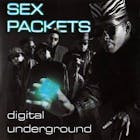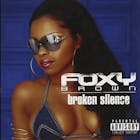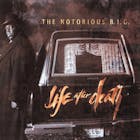
Classic Albums: 'Reasonable Doubt' by Jay-Z
Classic Albums: 'Reasonable Doubt' by Jay-Z
Published Thu, May 12, 2022 at 12:00 AM EDT
Self-actualization is an under-discussed aspect of rap music.
So many artists tend to speak their success into existence: how many rap songs have been released that feature a rapper boasting about wealth they have yet to attain, heights they have yet to climb? Did Big Bank Hank have a Lincoln continental and a sunroof Cadillac and a wall-mounted pool? Probably not. But one of the rap game's most iconic examples of self-actualization comes in the form of Shawn Corey Carter. Jay-Z's rise to fame speaks to his touted "hustler's spirit," but it has become absorbed into the urban folklore of a generation because he saw it for himself when no one else did.
At first, it seemed like Jay-Z's career was going to be forever bogged down by false starts.
He'd initially emerged in the late 1980s, a young lyricist out of Brooklyn with a penchant for speed raps, affiliated with Jaz-O, a fellow Brooklyn emcee out of the Marcy Projects who'd landed a deal with EMI. Jay guested on Jaz-O tracks like "Hawaiian Sophie" and "The Originators," and when the label sent Jaz on a tour of Europe, he brought Jay with him. Jay would later credit the trip with saving him from a drug raid in Marcy Projects that summer. It was the first moment where he realized his future would be better served with Hip-Hop, as opposed to hustling as a crack dealer in Marcy.
But after Jaz's EMI deal soured and his debut album performed poorly, Jay's career was flung into limbo. But Jaz-O had become friendly with Big Daddy Kane, and, by proxy, Kane soon got to hear Jay after working on music with Jaz-O. "After we got through, some of the cats asked me if I could help Jaz-O get a record deal," Kane recalled in 2017. "I told them that I liked the skinny light-skinned dude [Jay-Z] better and that I’d rather work with him. That’s how we connected and started working.”
DROP YOUR EMAIL
TO STAY IN THE KNOW
Big Daddy Kane schooling Jay Z pic.twitter.com/qYME6CFSgc
— Hip Hop Golden Age (@HipHopGoldenAge) May 6, 2014

I told them that I liked the skinny light-skinned dude [Jay-Z] better and that I’d rather work with him..."
- Big Daddy Kane
Kane recruited Jay to be his hypeman alongside Positive K, and it appeared Jay-Z's career was finally moving out of first gear. He started landing major appearances, on Kane's "Show and Prove," and Mic Geronimo's "Time To Build", as well as "Can I Get Open?" by Original Flavor.
Meanwhile, a young ambitious promoter out of Harlem was making a name throwing parties. Damon "Dame" Dash had been building an entertainment brand since he was 16. He made a name with outlandish tactics like offering a free bottle of Moët & Chandon to the first 100 ladies in the door at his events, and soon celebs and athletes were flocking to Dame's parties. The business expanded into artist management, and Dash got a group called Future Sounds signed to Atlantic and DJ Clark Kent. It was Kent (born Rodolfo Franklin) who told Dash he should take a look at this older rapper out of Brooklyn. Dash was impressed and the two went into business together, with Dash putting up money to help record Jay's first tracks. But it was hard for Dash to sell Jay-Z.
"It was at a time when people told me he was the worst rapper," Dame recalled in 2016. "I had been shopping him and everyone told me he raps too fast so I said I’ll just do it myself. I always go back to that now. Once we got into business, other people made money off of what we did and we had partners. All we did was become a slave to their agendas and we didn’t even realize it."
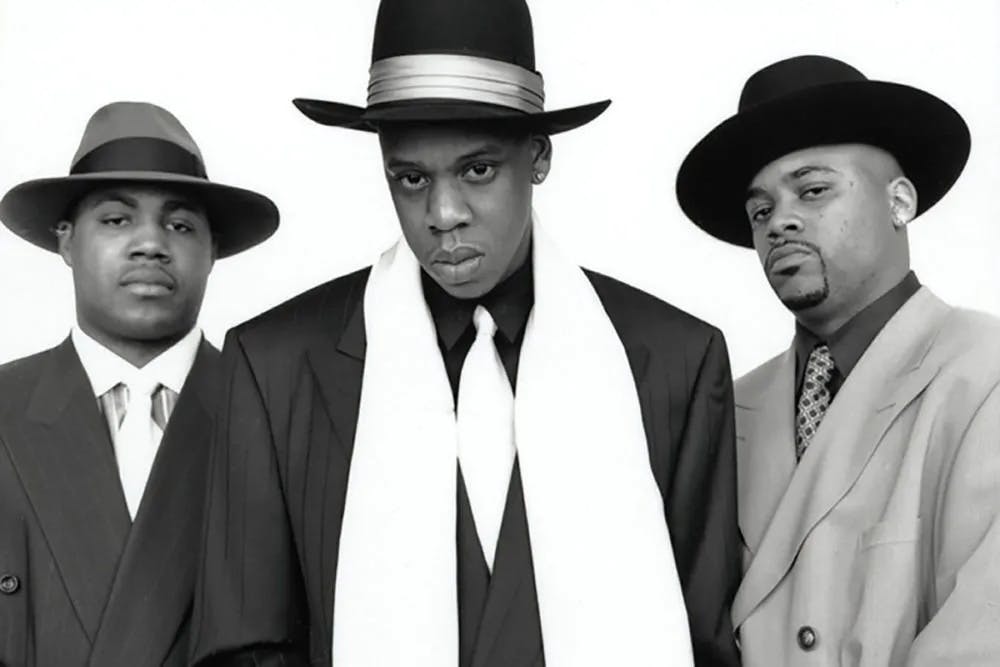

Jay-Z landed a deal with PayDay Records, and dropped the single "In My Lifetime." But when Dame and his now-partner Kareem "Biggs" Burke realized they weren't happy with the deal for Jay; the three men decided to launch their own label. They launched Roc-A-Fella Records and set about finishing Jay-Z's debut album. The young moguls saw themselves as upstarts in the industry, focused on making things work for them.
"I just remembered being manipulated just because we were young," Dame said later. "I remember certain little things that were done to manipulate…some worked and some didn’t. I’ve seen a lot of people that I care about get twisted. Those days were fun because I respected everybody 100% so it was unconditional love, no jade. I miss those days."
Roc-A-Fella inked a distribution deal with Priority Records, and in late 1995, released "Dead Presidents," as the first single from Jay's upcoming album. The Ski-produced track was virtually a call-to-arms for young Black men caught up in street hustling for dollars, as Jay laid bare his ambition for paper. The song's video received heavy rotation and featured cameos from AZ and The Notorious B.I.G. It was a coming-out party for Roc-A-Fella. They'd resented how hard they'd had to fight to prove themselves, now they were coming for the castle. Even if they weren't altogether happy with the Priority deal.
“Bad Boy was one of the first labels to have a young Black CEO," Jay told a German interviewer in 1997. "And the way he was doing it was so fresh and so new. Puffy, we got a lot of respect for him. We like everything they got coming out of there.”
After the success of "Dead Presidents," plus the street buzz generated from "In My Lifetime," Roc-A-Fella landed a major placement for Jay's next single. "Ain't No NIgga" landed a track spot on the soundtrack for 1996's Eddie Murphy vehicle The Nutty Professor, and the song was produced by Jaz-O, who also provided the hook, with a guest appearance from 16-year old Brooklyn rapper Foxy Brown.
“Jay knows that that’s the record that made him,” Foxy said to DJ Superstar in 2013.
“Serious, we all know that. And that’s a huge and iconic record for him, but he kept it going. And that’s a huge and iconic record for him, but he kept it going. He kept busting his guns…It’s so much the people don’t even know. It’s like having a husband and a side jump-off and they both know it about each other. You just have to finagle the whole situation.”
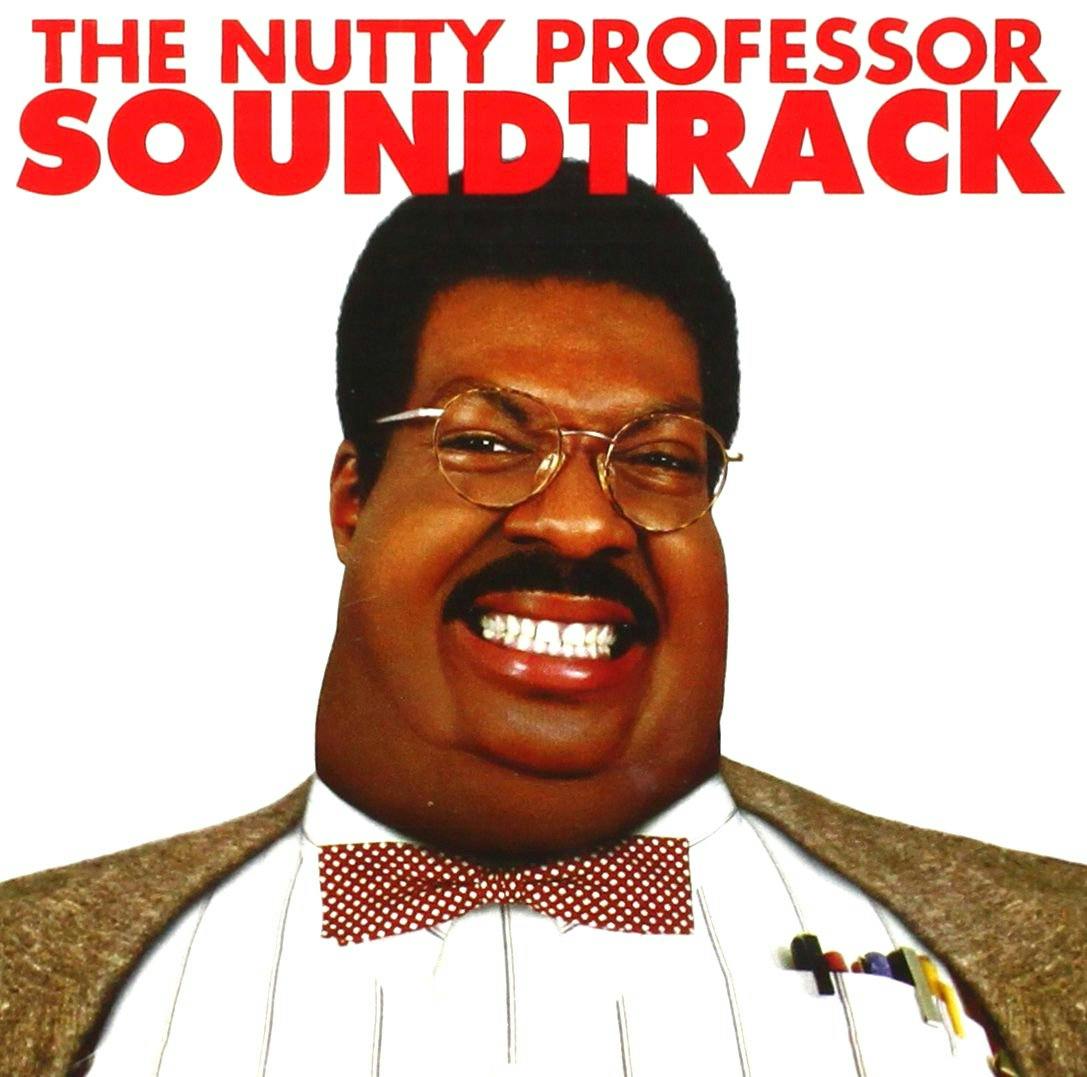
"Ain't No Nigga" (censored as "Ain't No Playa" for radio/video airplay) followed "Dead Presidents" onto the Billboard Hot 100, peaking at No. 50. It also went to No. 4 on the Hot Rap Tracks chart, with the two singles giving Jay-Z his first chart presence. They both also set the stage for his debut.
But it's not hard to understand why, at the time, Reasonable Doubt wasn't met with more fanfare. The album was released in June 1996, at the height of East/West tensions across magazine headlines. There was no shortage of major commercial blockbusters; from the Fugees' inescapable The Score, to 2Pac's All Eyez On Me; and with It Was Written, the sophomore album from Nas, dropping just a week after ...Doubt with significantly more anticipation, the first album from a cocky 26-year old wasn't going to dominate the conversation.
But Reasonable Doubt caught the right kind of attention. The album's polish belied an undeniable street spirit; as Jay waxed poetic about the angst of selling death to poor people while also announcing himself as a business-minded capitalist in the J.R. Ewing mold. Songs like "Coming Of Age" and "D'evils" wrestled with the moral consequences of chasing wealth and couched that conflict in crack—while also delivering these project parables in a way that resonated beyond the specificity of the street game.

He flows like he's conversing with you at a party or on the street, telling tales of male conquest or simple stories of street survival. His lyrics create cuttingly clever rhymes that ride bomb tracks provided by Clark Kent, Primo, Big Jaz and others with effortless perfection..."
- Charlie Braxton (THE SOURCE, 1996)
Reasonable Doubt arrived as mafioso rap had become the most fashionable voice for so many East Coast street rap purveyors. In 1995, Kool G Rap's 4, 5, 6 and Raekwon's Only Built 4 Cuban Linx... had been major albums drenched in organized crime lore, references to Giancana, Gotti and Genovese and heavy critical drew acclaim. Jay's debut echoed the fixation; opening with thematic cues from Carlito's Way and music video allusions to The Godfather and Scarface.
The album's third single "Can't Knock The Hustle" boasts a stark black-and-white visual (a cue from the album's cover) and has Jay, Dame, Biggs and their co-horts enjoying champagne and Cuban cigars, as their enemies plot against them. The song, with its Mary J. Blige-sung chorus and it's melodramatic video, established Roc-A-Fella as a brand and label. And the song became a signature song for early Jay-Z.
"I sat there and developed a whole track there in the house and then introduced the track to everyone," recalled "Can't Knock The Hustle" co-producer Knobody in 2016. "It wasn’t until Jay Z got on it that I had Dahoud come in and add some chords and sounds to it."
The production throughout Reasonable Doubt is uniformly strong. DJ Premier's "Friend Or Foe" and "D'evils" are standouts; with Clark Kent helming "Coming Of Age," "Cashmere Thoughts" and the Notorious B.I.G.-featuring "Brooklyn's Finest." One of the album's most fabled songs is the final single, "Feelin' It." The song was famously intended for Uptown Saturday Night, the debut album from quirky Bronx duo Camp Lo.
After Ski worked up the track, and he knew it was special immediately.
“I did it with my homegirl Mecca from and for my homeboy [Geechi Suede from Camp Lo], who came up." Ski explained in 2016. "And I was in the crib, I just recorded the song, and I’m like, 'I love this song.' I wrote the hook and the verse." Ski wound playing the track for Jay and Dame; and Jay immediately knew he needed that song. "Then he gave me a bag full of money and I gave him the song. It’s crazy ’cause he kept the hook, and the way I was flowing."

He said, 'Yo, I’ma take the hook and I’ma take your flow,' and obviously he made it way much better than me."
- Ski
Biggie's appearance on the album has also become a much-discussed piece of Reasonable Doubt's mythology. "Brooklyn's Finest" producer DJ Clark Kent recalled to SPIN just how Biggie and Jay wound up teaming up for the track.
"Right before I went to the studio, I was in a session with Biggie and Junior M.A.F.I.A. [The beat for 'Brooklyn’s Finest'] played by accident and Biggie wanted it for himself. I told him it was for Jay and he was mad. He liked it so much that he was like, “Nah, I gotta be on the song.” So I said, “Just come to the studio.”
Irv Gotti was present for the recording and recalled feeling anxious about B.I.G. referencing his feud with 2Pac on the song. The reference was the main reason that 2Pac eventually dissed Jay-Z on later Pac songs. Biggie's line famously poked fun at rumors that 2Pac slept with Biggie's wife, singer Faith Evans.
"'If Fay had twins/She’d probably have two Pacs, get it?'" Gotti explained in 2020, quoting Biggie's lyrics. "And Jay’s on the record with him so now he’s like, ‘Fuck you, ain’t no nigga like me, fuck Jay-Z’ and he starts bombing on Jay."
The controversy suddenly thrust Jay-Z into the ongoing feud between Pac's Death Row Records and Biggie's Bad Boy Entertainment. The media was swirling around bad blood between East Coast and West Coast rap artists, and now Jay was seen as a Biggie/Junior M.A.F.I.A. affiliate. But the unwelcome spotlight didn't necessarily translate to major album sales. Reasonable Doubt failed to make a tremendous impact in the summer of 1996, despite being well-received by critics.
Nonetheless, the album would eventually go gold and is now one of the most widely-hailed rap albums of all time. In the immediate aftermath, "Ain't No Nigga" and Reasonable Doubt directly led to Def Jam inking a distribution deal for Roc-A-Fella Records that pushed Jay's 1997 sophomore album to much higher visibility and reach than Reasonable Doubt had seen just a year prior. Dame Dash saw it from the beginning, and knew that this project was special.
"Because we believed in [REASONABLE DOUBT] so much, you couldn’t even tell me that it wasn’t going to be the best album that was ever made."
"It’s funny because it became that," Dash told VH1 in 2016. "Years later, when you reflect, you’re like, 'you were so arrogant and everyone said you were a fucking asshole because you were so arrogant,' but I was right."
